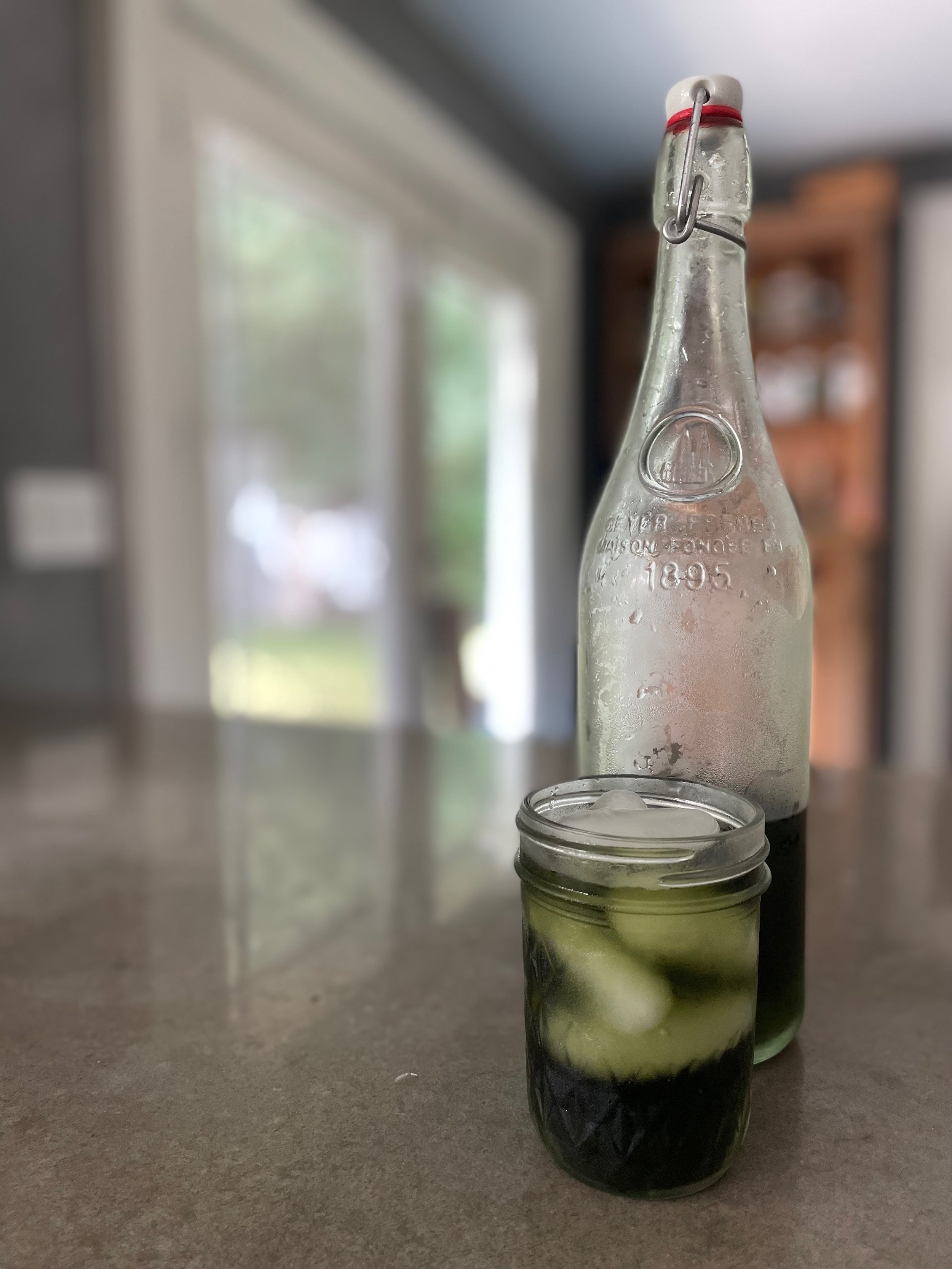Unlocking the Healing Powers of Nettles: A Closer Look at Its Medicinal Properties
Nettles, a remarkable medicinal herb, possesses several specific and beneficial qualities for plants and for us. They are known as dynamic accumulators, meaning they have the ability to draw nutrients, including nitrogen, from the soil and accumulate them in their leaves. This is one of the reasons why nettles are often used in organic gardening and permaculture practices, as they can be used as a nutrient-rich compost or liquid fertilizer for other plants. Additionally, the high nitrogen content in nettles contributes to their overall nutritive value and makes them beneficial for promoting healthy plant growth.
You can make nettle tea as an alternative method to quickly utilize nettle as a fertilizer in your garden. Here's how you can do it:
Gather nettle leaves: Collect fresh nettle leaves, wearing gloves to protect your hands.
Chop nettles: Chop the nettle leaves into smaller pieces. This will help release the nutrients during the infusion.
Boil water: Bring a pot of water to a boil. The amount of water will depend on how much nettle tea you want to make.
Add nettle leaves: Once the water is boiling, add the chopped nettle leaves to the pot. Cover.
Steep the tea: Reduce the heat, keep covered, and let the nettle leaves simmer in the water for about 10 to 15 minutes. This allows the nutrients to infuse into the water.
Strain the tea: After steeping, strain the liquid to remove the nettle leaves, ensuring you have a clear nettle tea.
Cool and dilute: Allow the nettle tea to cool down to room temperature. Then, dilute the tea with water at a ratio of 1:1 or 1:2, depending on the strength you desire. This step is important to avoid over-concentrated tea, which may harm your plants.
Apply to plants: Once the nettle tea is diluted, you can use it immediately to water your plants. Apply the nettle tea to the soil around the base of your plants, avoiding the foliage if possible.
Nettle tea provides an instant nutrient boost to your plants, supporting their growth and overall health. Use the nettle tea within a day or two to prevent fermentation or spoilage.
And, don’t forget to pour a glass over ice for yourself and reap it many medicinal benefits. Below, I have outlined some of this amazing herb amazing herbal actions.
Replenishing Diuretic: Nettles act as a potassium-rich diuretic, increasing urination and aiding in the elimination of excess moisture and accumulated dampness in the body. This can help reduce joint swelling and inflammation often associated with arthritic conditions.
Detoxifying Alterative: Known for its detoxification properties, nettles support the body in cleansing accumulated wastes. They exert a strong influence on the kidneys, urinary tract, blood, and skin, promoting overall purification.
Nutrient-Rich Tonic: Packed with essential nutrients, nettles offer a cellular-level nourishment. They are abundant in iron, protein, chlorophyll, Vitamin C, fiber, potassium, silicic acid, and calcium, among other beneficial components. This makes nettles valuable for strengthening connective tissues, assisting in protein metabolism, building iron-rich blood, and combating low blood pressure symptoms such as weakness, dizziness, and fatigue. They are particularly useful for addressing muscular wasting and weakness associated with surgery, injury, or aging, making them an excellent choice for middle-aged and older individuals.
Tissue-Toning Astringent: Nettle leaves serve as a reliable tonic astringent, aiding weakened and lax tissues in regaining their strength and vitality.
Stimulating Rubefacient: When applied topically, nettles stimulate local tissues by increasing blood flow and circulation, which can have a beneficial impact on the area.
Inflammation-Modulating: Nettles have the ability to modulate the body's inflammation processes, helping to maintain a balanced and regulated inflammatory response.
These diverse properties make nettles a highly versatile herb with a wide range of health benefits.


